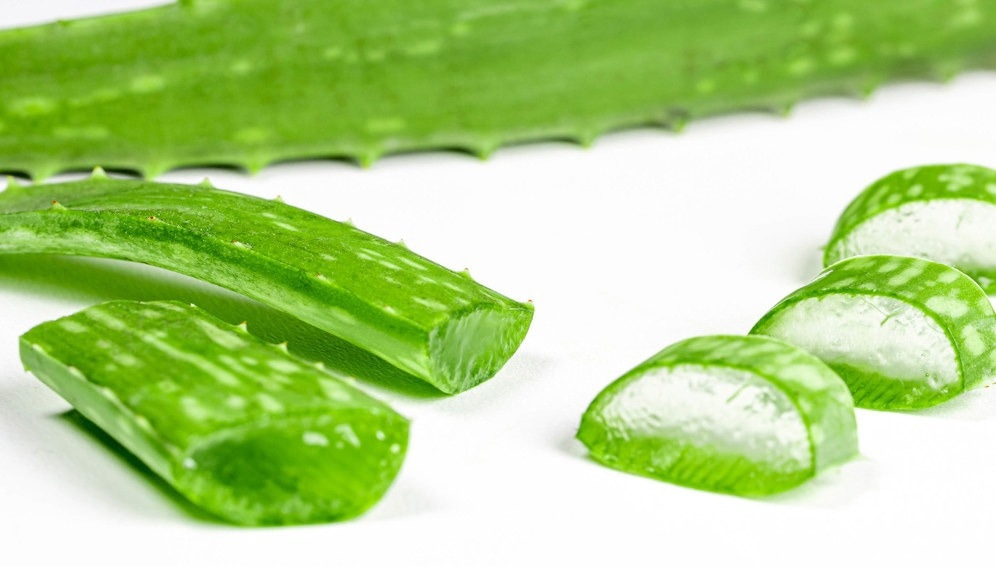According to a study, aloe vera peels that are discarded can be utilized as a natural insecticide to assist farmers in defending important food crops from damaging insects.
 Fresh pieces of aloe vera. The peels of this plant can be used as a natural pesticide against harmful insects, research suggests. Image Credit: Marco Verch
Fresh pieces of aloe vera. The peels of this plant can be used as a natural pesticide against harmful insects, research suggests. Image Credit: Marco Verch
Pests destroy between 20 and 40% of agricultural yields globally, threatening food security and nutrition, according to CABI (the parent organization of SciDev.Net).
Aloe vera is a cactus-like, stemless plant that is commonly grown in the US, Australia, China, Jamaica, Mexico, South Africa, and Tanzania. Its gel-like material is used to treat skin conditions including baldness prevention, sunburn recuperation, and skin diseases.
Aloe vera rinds or peels, however, are generally discarded as agricultural waste since they are believed to be useless.
It is likely that millions of tons of aloe peels are disposed of globally every year.”
Debasish Bandyopadhyay, Study Principal Investigator and Assistant Professor, Chemistry, University of Texas Rio Grande Valley
Bandyopadhyay and his colleagues demonstrated how aloe vera peels can serve as a natural pesticide, repelling insects from crops such as maize or millet, at a conference of the American Chemical Society on 17th August 2023.
Bandyopadhyay added, “We proved that [aloe] vera rinds’ derived extracts act as a feeding deterrent and eventually kill agricultural pests.”
Insects dislike aloe vera peels because they contain phytochemicals (chemicals generated by plants) that are poisonous to them.
“Insects may be harmed or killed by natural substances contained in aloe peels. Exposure to these compounds can cause discomfort, illness or even disruptions in an insect’s ability to travel, eat and reproduce,” Bandyopadhyay further stated.
After visiting a place where insects left aloe leaves alone while attacking the leaves of other plants, the researchers got interested in the possible use of aloe peels as a pesticide. They proposed that aloe peels contain unique defense chemicals.
To conduct their research, they gathered and dried the peels before extracting them with chemicals like dichloromethane (DCM), hexane, and methanol.
Their investigations revealed that the DCM extract of aloe peels, as well as six other chemicals from the peels, had significant insect-killing effects against farm pests.
Significantly, the compounds exhibited no harmful characteristics, suggesting that an aloe-peel-based pesticide would pose no substantial safety issues for humans.
“By repurposing the leftover aloe peels that are currently discarded, aloe production can be made more sustainable and contribute to achieving the UN Sustainable Development Goals,” Bandyopadhyay added.
Economic Potential
Chiranjib Chakraborty, a professor at Adamas University’s School of Life Science and Biotechnology in Kolkata, India, feels the results have enormous commercial potential and might aid in the promotion of organic farming and traditional plant remedies.
The world is now looking at organic farming.”
Chiranjib Chakraborty, Professor, School of Life Science and Biotechnology, Adamas University
He believes the findings of the study might encourage a change to more sustainable farming and the replacement of chemical-based practices on millions of rices, wheat, maize, and millet fields.
According to a study published in the journal Molecules in 2021, indiscriminate and long-term use of synthetic pesticides causes human health problems, water, air, and soil pollution, and insect resistance.
Plant-derived pesticides, which are inexpensive and environmentally safe, are a significant alternative to synthetic pesticides, conserving the environment and human health while increasing agricultural yield.
Chakraborty believes the study opens the door to further research on more traditional medicinal herbs to establish scientific proof of the alleged healing effects.
Source:
Journal reference:
Souto, A. L., et al. (2021). Plant-Derived Pesticides as an Alternative to Pest Management and Sustainable Agricultural Production: Prospects, Applications and Challenges. Molecules. doi.org/10.3390/molecules26164835.